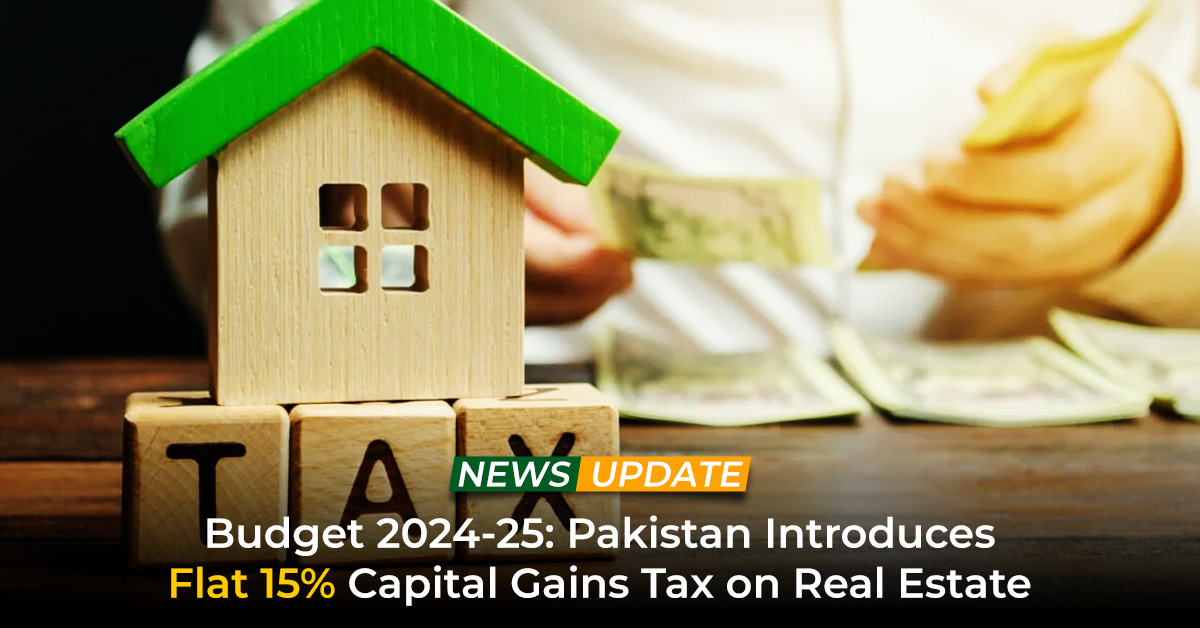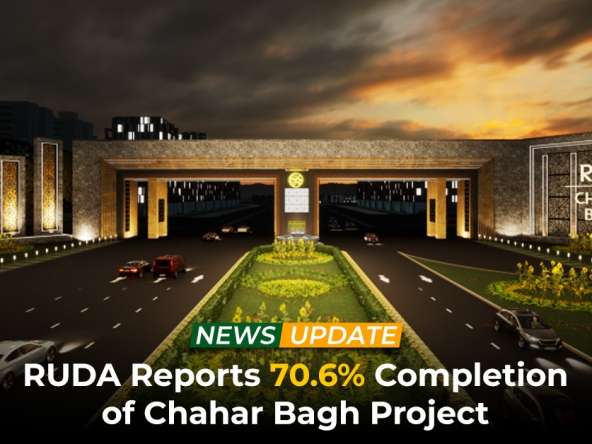Islamabad: The 2024-25 budget has introduced significant changes to the capital gains tax regime, particularly affecting real estate, as reported on June 13.
These modifications are intended to streamline the tax framework and enhance revenue from property transactions. The government anticipates that these adjustments will increase tax revenue by more than PKR 60 billion. Beginning July 1, 2024, a significant revision of the capital gains tax system for assets, including real estate, will be put into effect by the government. The new system will introduce a flat tax rate for all filers and eliminate the benefits of longer holding periods, which previously benefited ordinary citizens and taxed businessmen. The proposed changes include:
- For assets purchased on or after July 1, 2024, a uniform tax rate of 15% will apply to all filers, irrespective of the holding period.
- Non-filers, however, will face taxation at the standard slab rates, which range from 15% to 45%, regardless of the holding period.
Under the current regime, capital gains from the sale of immovable property are taxed based on the holding period. The longer you hold the property, the lower the tax rate. The current tax rates are as follows:
- 1 year holding period: 15%
- 2 years holding period: 12.5%
- 3 years holding period: 10%
- 4 years holding period: 7.5%
- 5 years holding period: 5%
- 6 years holding period: 2.5%
- After 6 years: 0%
This tiered approach encourages long-term holding of property by reducing the tax burden over time, thus taxing real-estate-related businessmen more than ordinary citizens who sell their property in times of need.
The new budget proposal has generated mixed reactions from various stakeholders in the real estate market. Proponents argue that a flat tax rate will simplify the tax system, making it easier to understand and comply with, thereby increasing overall tax collection. They believe that the removal of tax incentives for longer holding periods will reduce speculative investments and stabilize property prices.
However, critics contend that the new tax regime may discourage ordinary citizens from investing in real estate, as the flat tax rate does not account for inflation and other factors affecting property value over time. They argue that the removal of lower tax rates for long-term holdings could adversely impact individuals who rely on real estate as a primary means of savings and investment.
The government’s decision to introduce this flat tax rate is part of a broader strategy to enhance revenue collection and address fiscal challenges. By targeting the real estate sector, which has historically been a significant source of untaxed wealth, the government aims to bring more transparency and efficiency to the taxation system. The success of this initiative will depend on its implementation and the response of the real estate market in the coming months.
The 2024-25 budget’s introduction of a flat 15% capital gains tax on real estate marks a significant shift in Pakistan’s taxation policy. While it aims to simplify the tax structure and increase revenue, its impact on the real estate market and individual investors remains to be seen. The government’s ability to balance these changes with the needs of the population will be crucial in determining the success of this new tax regime.



